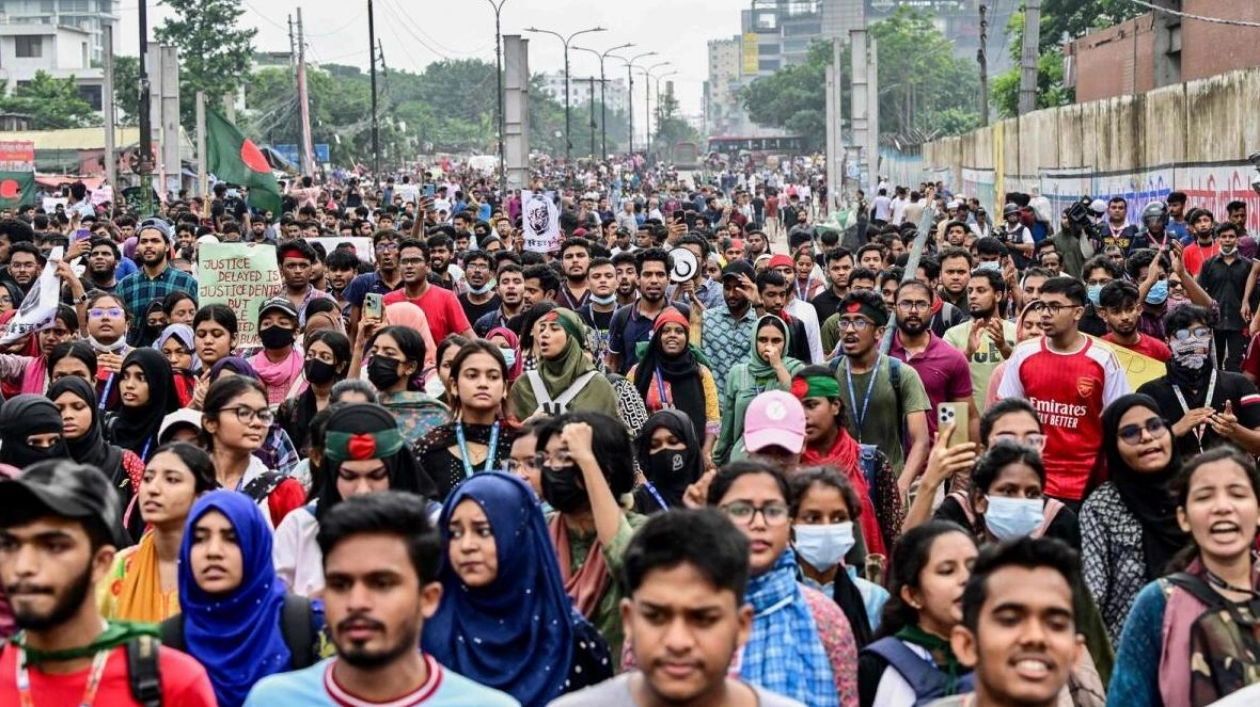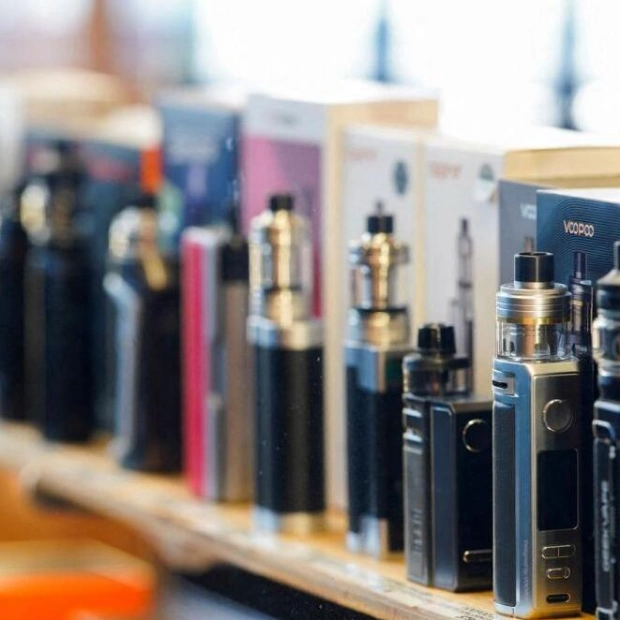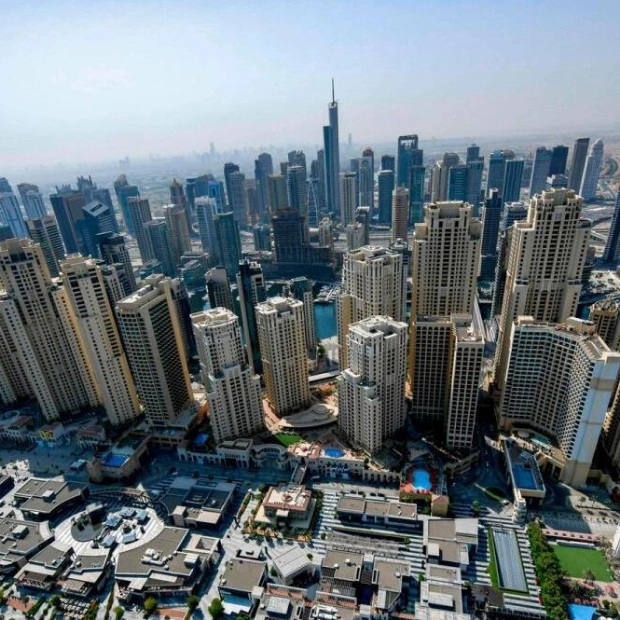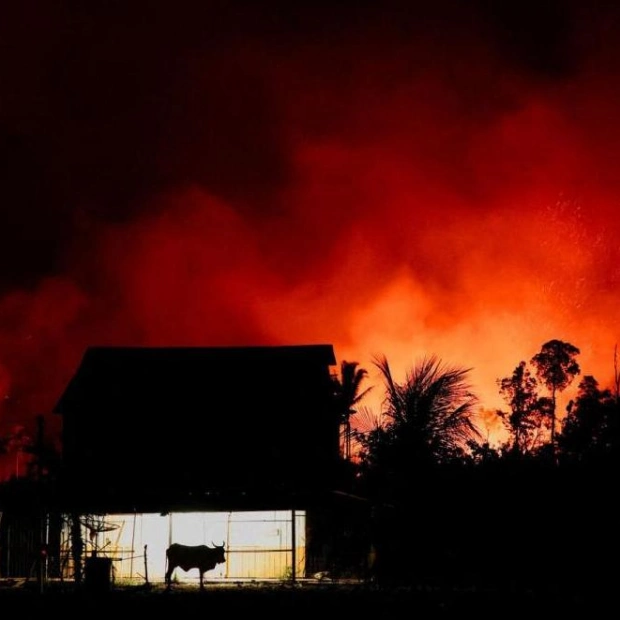On Sunday, at least eight individuals lost their lives due to violent confrontations between demonstrators calling for Prime Minister Sheikh Hasina's resignation and government loyalists, according to police and medical professionals. The fatalities, which included victims of knife attacks and gunshot wounds, were reported across several districts: three in Pabna, two in Rangpur, two in Dhaka's Munshiganj, and one in Magura, as confirmed by police officers and hospital staff to AFP.
The unrest began in July due to protests against civil service job quotas, escalating into a broader anti-government campaign that has claimed over 200 lives, marking some of the most severe turmoil during Hasina's 15-year leadership. This movement has expanded across Bangladesh, a country with a population of approximately 170 million, encompassing various societal groups such as film stars, musicians, and singers, with rap songs urging public support becoming viral on social media.
A young female protester, identified only as Sakhawat, highlighted that the movement's focus has shifted from job quotas to a broader call for change, as she painted graffiti on a wall in Dhaka labeling Hasina a 'killer.' Hasina, 76, has been at the helm of Bangladesh since 2009, securing her fourth consecutive term in January after an election devoid of credible opposition. Her administration has faced accusations from human rights organizations of exploiting state institutions to consolidate power and suppress dissent, including through the alleged extrajudicial killing of opposition activists.
The demonstrations initially erupted in early July in response to the reinstatement of the quota system, which allocated over half of government jobs to specific groups. This system has since been modified by Bangladesh's highest court.






